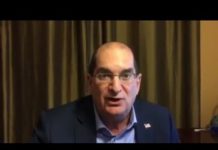It doesn’t get more clear than this. “Sleep is time for cell regeneration, hormonal regulation, memory consolidation and psychological regrouping. Lack or poor quality of sleep can have severe consequences in and out of the workplace,” said Dr. Sabrina Hagid-Katz, noted sleep expert.
All research confirms that insufficient sleep (less than 8 hours/night) confirms that
– it is harder to learn and focus.
– it alters brain function which in turn hinders the ability to make decisions and solve problems, multi-task (not productive anyway), react quickly, be creative and remember facts.
– it can negatively affect relationships and how we react to conflicts.
Here is a list of No-No’s that preclude sleeping well and sleeping enough:
1. Working until “light’s out.” Check you brain out of work at least one hour before you want to sleep. According to Amy Cooper Hakin, PhD, work place expert, “Your brain needs time to wind down. Without that time, your brain will remain in work mode until it crashes. Transfer your work thoughts and/or worries to a piece of paper to free your mind and enable it to relax and rest.”
2. Exercising too close to bedtime. Exercise a good 4 hours prior to bedtime. Any sort of cardiovascular exertion causes your heart rate to skyrocket…your heart needs much more than an hour to calm down.
3. Going to sleep at different times every night and waking up at different times every day. Go to and get out of bed at the same time every night, including weekends, to allow your body to become accustomed to a regular sleep routine.
4. Pulling all-nighters. You’re not in college any more. An all-nighter is equivalent to having a .10 blood alcohol level. Instead of pulling an all-nighter to complete a project, either stay one hour later at work or be there one hour earlier for a week.
5. Drinking alcohol/beer/wine before bed. All of them hinder your sleep cycle and promote sleep apnea choking. Instead, take a bath, meditate, read a book, snuggle with your honey.
6. No sleeping pills (they’re ineffective and disturb your sleep cycle) and no caffeine after lunch. It takes caffeine 24 hours to get out of your system.
7. Staring at your screens 1-hour prior to sleep. Either turn off your screens to avoid the blue light emanating from them or install an app (f.lux – it’s free) that changes the blue light to a dim orange-after-sunset light. That sunset light convinces your brain it can relax and turn off its red alert.
Stop these No-No’s consistently for a month and…sleep well.





























